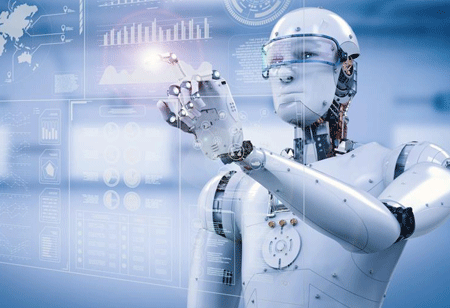THANK YOU FOR SUBSCRIBING
Artificial Intelligence - Upgrading the future of Manufacturing Industry
Manufacturing is one such area where artificial intelligence has set foot and escalated the smart manufacturing or the industrial revolution.

By
Apac CIOOutlook | Thursday, January 01, 1970
Stay ahead of the industry with exclusive feature stories on the top companies, expert insights and the latest news delivered straight to your inbox. Subscribe today.
The need for change is massive and constant. With technologies like the artificial Intelligence empowering the efficiency of businesses and making advancements across various industries, the world is witnessing a significant change. Manufacturing is one such area where artificial intelligence has set foot and escalated the smart manufacturing or the industrial revolution.
Artificial Intelligence Transforms Manufacturing
In addition to the manufacturing sector, the usage of AI has impacted the fundamentals of the global supply chain management. Demand-driven production can be achieved by applying AI within the supply chain management by identifying demand patterns from the data gathered through customer insights and behavioral analysis. Case in point, industrial robots have been a part of the product manufacturing workspace for quite some time now, and to further notch it up, cobots (collaborative robots) have come into existence. Employed alongside humans, these robots are designed to respond and interact all the while being capable of higher precision tasks.
Check Out This: Managing MFG
AI is also enhancing and proving its relevance in predictive maintenance of machines and tools. Sensors and other tracking devices are employed to monitor the operations and analyze the performance, which predicts the chances of equipment breakdown and assists in taking in-advance actions. Moreover, machine vision systems--in parallel with machine learning algorithms--are utilized to detect flaws and deficiencies in the quality of the product.
Most of the automotive manufacturers have entailed the usage of these vision systems to analyze process control and also inspect robot guidance. One other technique that guides decision making in the manufacturing sector is the digital twin technology. The IoT sensors bridge the physical and digital platforms by gathering real-time data and providing an exact visual replica of large-scale machinery. This model tracks anomalies that can be used to improve performance and quality of machines and products.
With the rise of modern manufacturers, the amount of data produced is enormous and the need for AI in managing the unfathomable amount of data is significant. Conquering quite a few challenges in the industry, AI is gradually elevating its importance in the manufacturing sector.
See Also:





